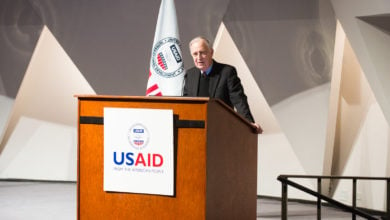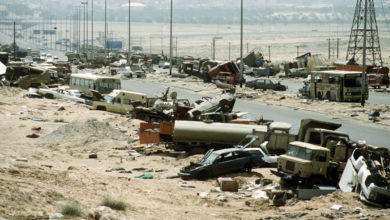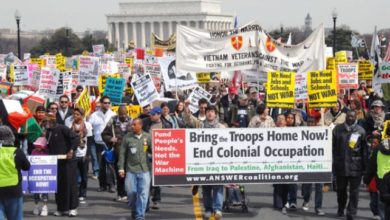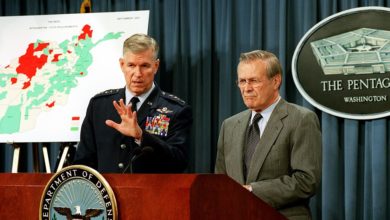Sammi Alaa is the chairman of the Danish Committee for a Free Iraq and a member of the Iraqi Patriotic Alliance. The IPA is a group made up of different political currents in Iraq united by opposition to the occupation of Iraq and support for the Iraqi resistance. The following are excerpts of the interview that was conducted by Willi Langthaler of the European-based Anti-Imperialist Camp at the conclusion of the World Social Forum 2005 in Porto Alegre, Brazil, February 1, 2005.
Why did you come to the World Social Forum in Porto Alegre?
We have been discussing with our colleagues of the Anti-imperialist Camp and the network of Free Iraq Committees in Europe whether it was worthwhile to attend. We eventually decided to form a common delegation, “Support the Iraqi Resistance,” unifying our efforts to address the anti-imperialist forces within the WSF’s participants. We did so because we do not agree to the official agenda of the WSF, which is concentrated in the slogans “no to war, no to violence” and “another world is possible.” This does not make any sense in the reality of the world today. Imperialism is waging an all-out attack on the military, political, social and cultural level not only in Iraq. Iraq and Palestine are the most clear and extreme expressions of this tendency. We are convinced of the necessity to appeal to the anti-imperialist forces of the Brazilian and international left to focus their attention to the support of the Iraqi Resistance in order to defy U.S. imperial designs.
The demonstration [in support of the Iraqi Resistance] took place on the day of the election in Iraq, which it opposed. How do you evaluate their impact?
The Iraqi Patriotic Alliance considers the war of 1991, the UN embargo and the war and occupation starting in 2003 illegitimate and illegal according to international law, the Geneva Convention and the UN charter. Therefore the elections are illegitimate and illegal as well as all political institutions emanating from them.
The entire political process set in motion by the occupants ranging from the “Governing Council” over the “Transfer of Sovereignty” and the “Interim Government” to the so-called elections is illegitimate. Therefore we called on our people to boycott the elections. We appreciated the call of some 50 Iraqi parties to boycott the elections and we ask all parties refusing to participate in the “political process” to take a further step ahead: to join hands in a political front including all forces of the Iraqi Resistance.
The Western media claim a high turnout and thus hail the elections as a success of democracy. Isn’t it a defeat for the defying forces?
It was clear that the corporate media would celebrate a victory of the U.S. They did the same in Afghanistan while in reality the elections took place only in Kabul.
But how can one speak of a success if the influential Sunni minority nearly completely refused to go to the ballots? In a large number of cities a total boycott was recorded like in Diala, Baquba, Anbar, Falluja, Samarra including entire districts of Baghdad like Adamiya, Amariya and Sadr City with its two million inhabitants.
We need, however, to bear in mind that the U.S. set up a revolver democracy. They threatened the people in many ways to participate. People used to receive their food ration cards by the end of the year. This time the Allawi government postponed the issuance of the vouchers until the elections and combined it with the casting of the vote. The exponents of the Muslim Cleric Council which called for a boycott received death threats. Actually half a dozen of its members were assassinated. Also many figures of the Sadr movement were jailed to pressurize them into electoral participation.
How will the elections affect the Resistance?
I will answer by outlining the two opposing political strategies, the Iraqi Resistance’s one and the occupation’s one. While the Iraqi Resistance succeeded in the last two years in marginalizing all the institutions set up by the occupation power and polarizing the political landscape in Iraq, the occupation completely failed to find a reliable Iraqi ally. So the Iraqi Resistance will continue to fight for its two main goals: Firstly the liberation of Iraq and the re-establishment of the Iraqi independence, and secondly the building of a united and democratic Iraq for all.
10 3 minutes read






